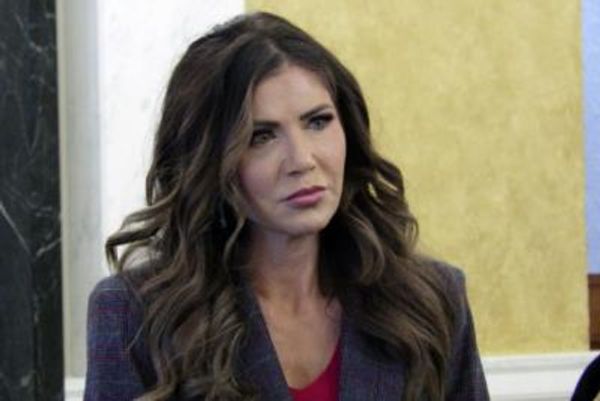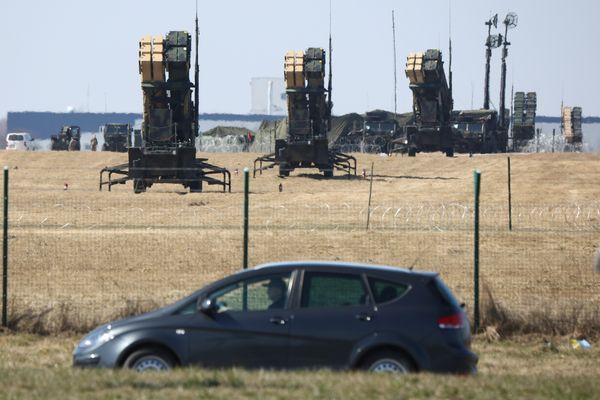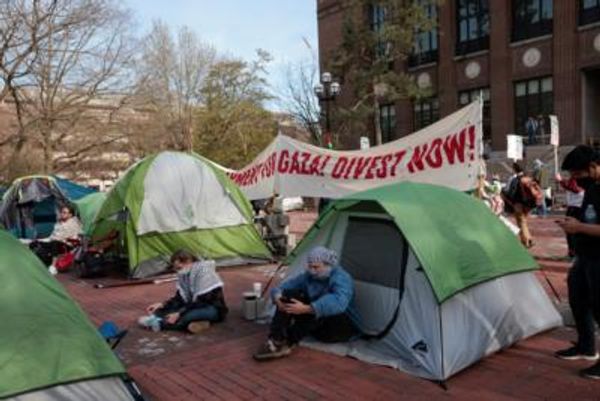
Papua New Guinean Prime Minister James Marape has celebrated the strong economic and security ties between his country and Australia during an address to MPs and senators in Parliament.
Marape hailed the recent signing of a bilateral security agreement with Australia, which he said would be the “blueprint that reflects our focus collectively, and my focus, on Papua New Guinea becoming a strong, economically resilient nation”.
“A strong, economically empowered Papua New Guinea means a stronger and more secure Australia and Pacific,” he told Parliament on Thursday morning.
Marape also said a comprehensive strategic and economic partnership with Australia, signed in 2020, was the “embodiment” of the two nations’ relationship.
“This program entrenches a direction I’m taking for my country, which is to move Papua New Guinea away from being an aid donor recipient nation, to becoming a very important economic partner nation and an economically self-reliant nation.”
Marape’s address comes as he’s facing political trouble at home: MPs in his own Parliament reportedly mull a vote of no confidence against him, and several of his ministers have resigned after deadly riots rocked Port Moresby in recent weeks.
It also comes in the context of deepening security ties between Papua New Guinea and Australia. The bilateral agreement, reached in December, was partly intended for Australia to combat China’s influence and security ties with Pacific nations.
Prior to Marape’s address, Australian Prime Minister Anthony Albanese praised Papua New Guinea’s contributions to World War II, when Australian and US soldiers fought Japanese troops in what was then the Australian Territory of Papua.
“When we remember the care and kindness your people extended to wounded diggers in their hardest moments of pain and fear, I say to you — Australia will never forget Papua New Guinea,” Albanese said.
Opposition Leader Peter Dutton echoed the sentiments: “Two nations share a history which has brought you here today, and your presence here today carries with it the weight of that shared history … Indeed, within the soil of your country and flowing through the blood of Papua New Guineans and Australians, is the memory of the service and sacrifice of our forebears.”
Griffith Pacific Hub project lead Tess Newton Cain told Crikey Marape’s address was a historic event.
“It is an appropriate response to Prime Minister Albanese having been the first foreign leader to have addressed the Papua New Guinean Parliament last year,” Cain said. “It is an important recognition of the closeness of the relationship between Australia and Papua New Guinea. I think it is a further indication of this government seeking to ‘walk the talk’ when it comes to deepening relationships with Pacific island countries.”
Marape is only the 16th world leader to address the Australian Parliament and the first Pacific leader to do so. The tradition of inviting foreign heads of state to address the Parliament is a relatively recent one: the first was US President George H.W. Bush, in 1992, and since then three of Bush’s successors have done it too. The leaders who have addressed Parliament include two from China, including Xi Jinping in 2014; two Indonesian presidents, including Joko Widodo in 2020; two UK prime ministers, and leaders from Canada, New Zealand, Japan, Singapore, and Ukraine. Ukrainian President Volodymyr Zelenskyy, who spoke in 2022, was the only one so far to do it remotely via video link. Until 2003, when US President George W. Bush and Chinese President Hu Jintao spoke on two consecutive days, addresses were made to joint meetings of the House of Representatives and the Senate, but an incident during Bush’s speech where two Greens senators, Bob Brown and Kerry Nettle, interjected and were booted from the House prompted a rewriting of the rules. Since 2006, when UK prime minister Tony Blair addressed Parliament, senators have been invited to the House as “guests”, rather than a joint meeting being convened.







